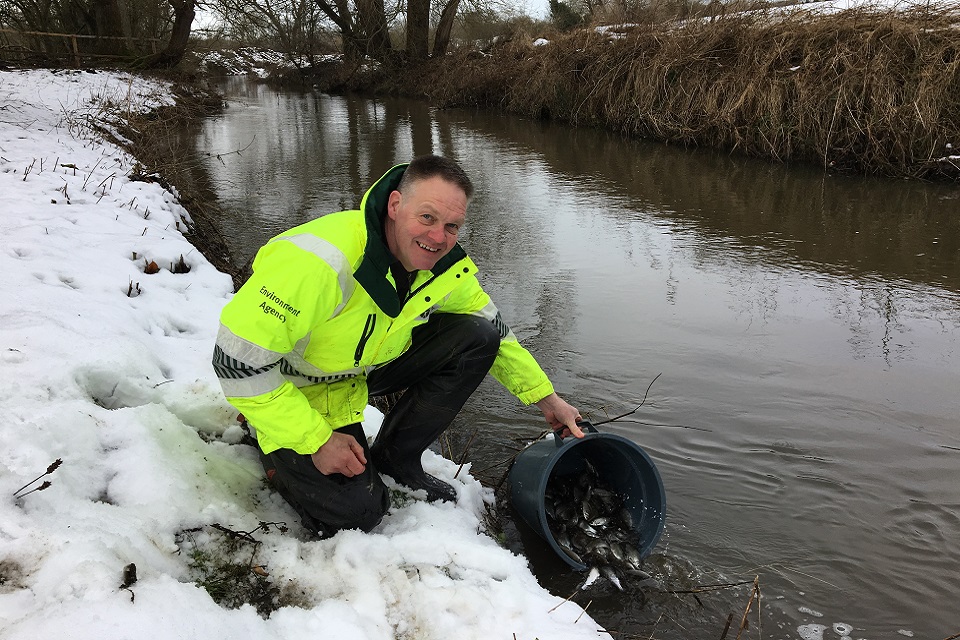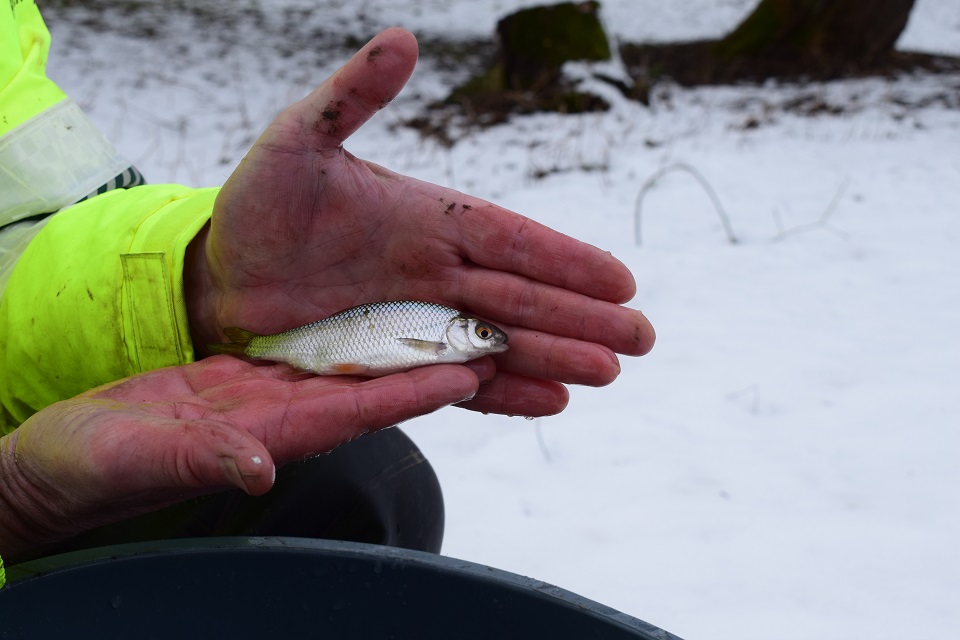Press release: North east rivers get fish stocks boost
The Environment Agency has released more than 40,000 young fish into north east rivers during last year to give stocks a boost.
The fish – chub, dace, roach, bream, barbel, tench, grayling, crucian carp and rudd – are just some that were released right across the region during 2017.
And on Monday (22 January), the Environment Agency’s north east fisheries team started off the new year by releasing 4,000 chub and 5,000 roach into the River Skerne at Darlington.
All the fish were reared at the Environment Agency’s fish farm near Calverton, Nottinghamshire, using funding from rod licence sales.
Last year fish were released into rivers such as the Tees, Wear, Skerne, Gaunless, Browney, Blyth, Pont, Clow Beck and Langley Beck as well as Stillwater fisheries.
The work is part of the Environment Agency’s ongoing plan to develop and restore rivers and fisheries in the region, targeting those which have previously been affected by pollution or where barriers affect fish passage.

Paul Frear, Fisheries Officers for the Environment Agency in the north east, said:
Restocking is one of many things we do together with our partners to develop fisheries, including reducing the impact of pollution, improving habitats and removing barriers to fish migration.
The Environment Agency releases fish into our waterways annually. Fisheries officers target fish stocking activity using data from national fish surveys to identify where there are problems with poor breeding and survival. Paul added:
By releasing fish into the rivers it helps the process of natural recovery and development. We’re pleased to be able to provide these young fish as part of our commitment to rod licence paying anglers. Restoration and the creation of new fisheries for all people to enjoy is a very important aspect of our work.
Many of our industrialised rivers have improved dramatically in water quality in the last 30 years and targeted and appropriate restocking has helped the restoration of natural fish stocks and viable fisheries.
Angling is a great way to keep healthy and enjoy the natural environment. All rod licence income is used to fund work to protect and improve fish stocks and fisheries.

Fishing is free for children under 16, although those aged between 12 and 16 still need a junior licence. For anyone over 16, a full annual licence costs from just £30, with some short term and concessionary licences also available. You can buy your rod licence online at the gov.uk website